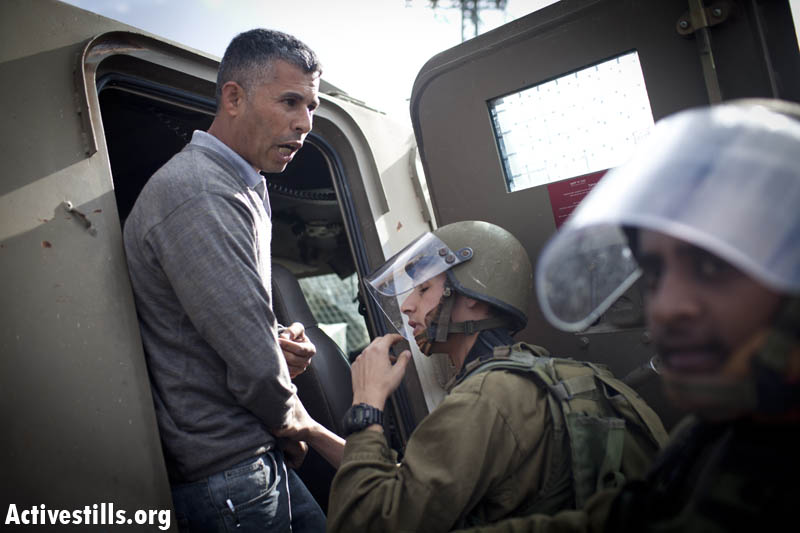Category: In the Media
-
Prisoner release: The number game of Israel
19 December 2011 | The Raging Palestinian Yesterday marked the so called completion of the prisoner swap agreement, which commenced on October 18, 2011, when Gilad Shalit was released for a total of 1,027 Palestinians to be released from Israeli prisons in two separate waves. Yet it must be noted that the numbers do not…
-
2 Palestinians arrested in Nabi Saleh still in jail for resisting occupation
17 December 2011 | Chroniques de Palestine In a blatant demonstration of the discriminatory policies used by the Israeli authorities when it comes to deal with protesters; out of the 21 persons who were arrested during the demonstration in Nabi Saleh on 16.12.2011, all the Israeli and internationals were released while two Palestinians are still…
-
21 arrested in Nabi Saleh demonstration commemorating the death of Mustafa Tamimi
16 December 2011 | Popular Struggle Coordination Committee Soldiers attacked the peaceful demonstration, shooting tear-gas projectiles directly at protesters. 21 were arrested in an attempt to block the entrance to Halamish settlement and to reach the village’s confiscated spring Hundreds joined the weekly demonstration in Nabi Saleh today, marking the killing of Mustafa Tamimi (28), who…

